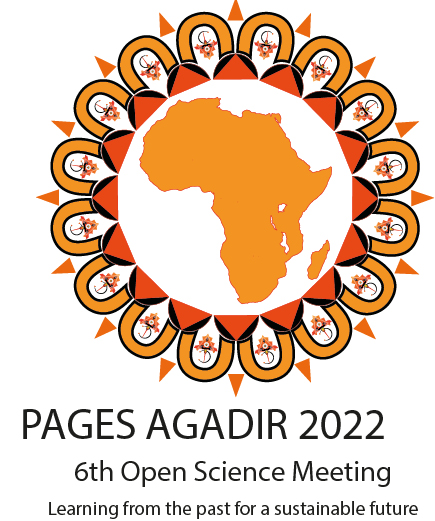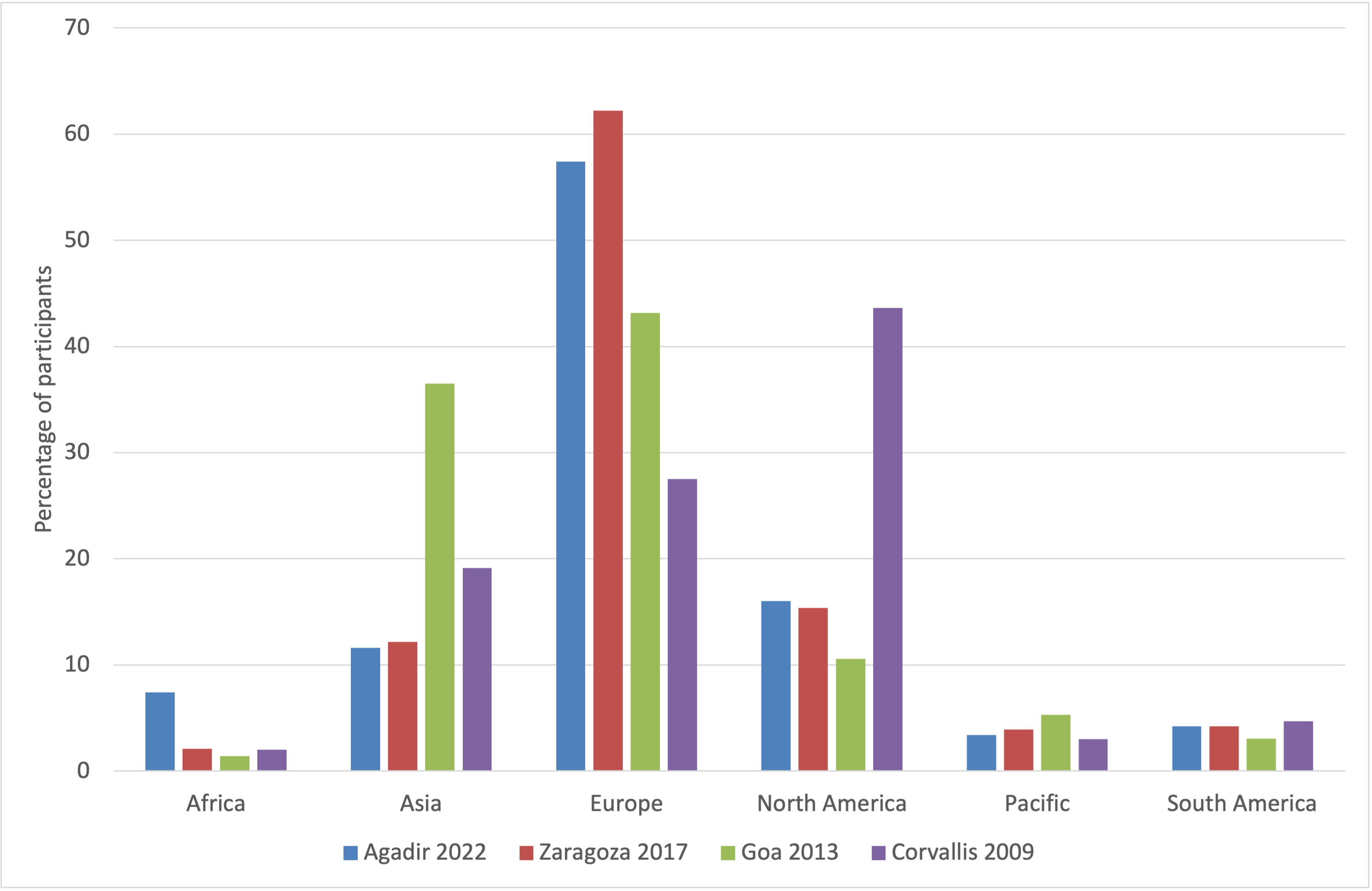- Home
- Publications
- PAGES Magazine
- Toward a More Inclusive and Diverse PAGES Community
Toward a more inclusive and diverse PAGES community
Evans MN, Valero Garcés B, van Rensburg C, Ait Brahim Y, Schafstall NB, Falster GM & Meissner KJ
Past Global Changes Magazine
30(2)
124
2022
Michael N. Evans![]() 1,2, B. Valero Garcés
1,2, B. Valero Garcés![]() 3, C. van Rensburg4, Y. Ait Brahim
3, C. van Rensburg4, Y. Ait Brahim![]() 5, N.B. Schafstall
5, N.B. Schafstall![]() 6, G.M. Falster
6, G.M. Falster![]() 7,8 and K.J. Meissner
7,8 and K.J. Meissner![]() 8,9
8,9
Roundtable at the PAGES 6th Open Science Meeting, online, 16 May 2022
PAGES recognizes the need to consider concerns about inclusivity and diversity in all aspects of its activities. In advance of the PAGES Open Science Meeting (OSM), and reflecting desires expressed by the PAGES community, an Inclusivity Committee was formed (pages-osm.org/index.php/general-information/diversity-and-inclusion). The inclusivity and diversity roundtable was integrated into the virtual meeting plan of the OSM. Held on 16 May 2022, it was attended by over 90 people from 26 countries.
The roundtable and its outcomes
Discussion of the following questions at the roundtable produced a number of ideas for consideration:
- How can PAGES obtain more information about diversity and equity concerns? The recommendation was to create a PAGES email address, monitored by a standing committee, to which the community could report problems.
- Have you ever felt excluded from a PAGES sponsored event, and if so, how? No one present for the roundtable volunteered an example, but we imagine there might be reports if an anonymous survey were to be taken of the entire PAGES community.
- What are some examples of ways in which PAGES has improved the inclusion of members of underrepresented geographical areas, sociodemographic groups, or in any other ways in its activities and leadership? The discussion noted that PAGES hosts open webinars and requires consideration of career stage and geographic representation at workshops, but could do more.
- How could PAGES be more inclusive? PAGES could expand its definition of representation and diversity into sociodemographic considerations; encourage hybrid activities that consider time zones, internet connectivity, and systemic barriers to participation by underrepresented groups; create virtual platforms and networking to train a more diverse community in data analysis, a core activity; and give agency to researchers working in underrepresented regions. The PAGES Early-Career Network (pastglobalchanges.org/ecn) provides excellent examples of all these initiatives.
- What activities and initiatives might a standing PAGES Inclusivity and Diversity Committee pursue? Participants suggested that such a committee would need clear goals and planned outcomes, and to provide regular updates to the community for discussion. New initiatives could include a mentoring program to build capacity in students and early-career researchers, increasing diversity in PAGES' management, SSC, and working group leadership, and publishing a code of conduct or community charter spanning all PAGES activities.
The path forward
The PAGES International Project Office (IPO) and Scientific Steering Committee (SSC) are actively discussing how diversity and inclusivity might be improved by governance and operational changes. PAGES does not tolerate discrimination or harassment at workshops or meetings and is committed to an open and welcoming environment. But to achieve these goals, we must make education, training, and dialog accessible across the PAGES community. Because PAGES is globally dispersed, we might be best served by self-paced programs. Excellent resources, including the URGEoscience (2020) anti-racism (urgeoscience.org/curriculum) and Safe Zone (2022) LGBTQ+ (thesafezoneproject.com/curriculum) curricula, are available. Finally, we need to set specific goals and regularly assess outcomes. A standing committee or an annual SSC agenda item might meet this need. Everyone gains from progress toward a more just, diverse, and inclusive intellectual community (Willenbring 2020), itself the root of a more creative and dynamic marketplace of ideas (McGee 2021).
Acknowledgements
We are grateful to the local organizing committee of the OSM for hosting the roundtable, attendees for offering their thoughts and ideas, Sarah Eggleston for the illustration, and Marie-France Loutre, Stella Alexandroff, Martin Grosjean, and Willy Tinner for helpful discussions.
affiliationS
1Department of Geology and Earth System Science Interdisciplinary Center, University of Maryland, College Park, USA
2School of GeoSciences, University of Edinburgh, UK
3Instituto Pirenaico de Ecología, Spanish Scientific Research Council (IPE-CSIC), Zaragoza, Spain
4PAGES International Project Office, Bern, Switzerland
5International Water Research Institute, Mohammed VI Polytechnic University, Benguerir, Morocco
6Czech University of Life Sciences, Prague, Czech Republic
7Research School of Earth Sciences, Australian National University, Canberra, Australia
8ARC Centre of Excellence for Climate Extremes, Australia
9Climate Change Research Centre, University of New South Wales, Sydney, Australia
contact
Blas Valero Garcés: blas ipe.csic.es
ipe.csic.es
Michael N. Evans: mnevans umd.edu
umd.edu
references
McGee H (2021) The Sum of Us: What racism costs everyone, and how we can prosper together. Profile Books, 448pp
The Safe Zone Project (2022) The Safe Zone Project. thesafezoneproject.com, accessed 10 Oct 2022
URGEOSCIENCE (2020) Unlearning racism in geoscience. urgeoscience.org, accessed 6 Sept 2022

